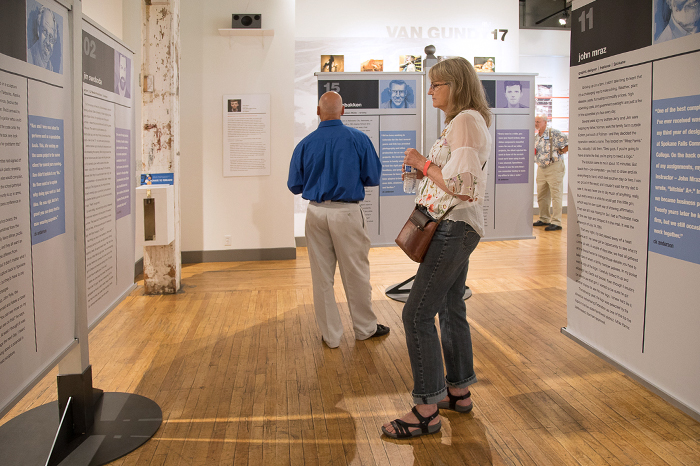…we’re still here.
I know what you’re thinking: That cannot possibly be. After all, nobody expected it to last. A couple of graphic designers, half a generation apart, both from rural Washington towns that start with the letter C and neither with any business knowledge whatsoever, starting a design company back in 1988? I guess it proves that literally anything is possible.
So, last Saturday, we threw a party to celebrate. Not so much for helveticka, but for our families, friends, collaborators, and, of course, for our clients. Surprisingly, more than 200 people showed up. Maybe it was the free live music. Maybe it was the wine, the beer, and the gourmet hot dogs.
Or maybe it was the chance to learn about 30 collaborators who, over the years, played an integral part in helping our firm reach this milestone – each of whom shared a personal story either directly or indirectly related to their profession. The result is a body of exhibited work we call CX30: Creative Experiences, Thirty Collaborators.


And, as luck would have it, nearly all of them were on hand to mark the opening of CX30 and to help celebrate helveticka’s thirtieth anniversary.

Thanks to everyone who shared this moment with us. We’re glad you came – each and every one of you.
photographs by Chad Ramsey
